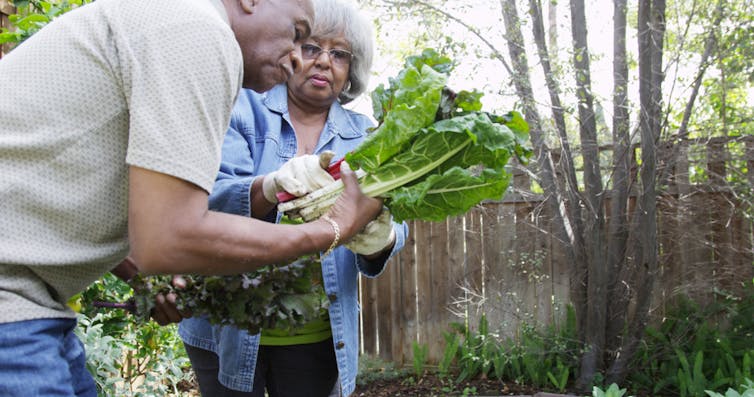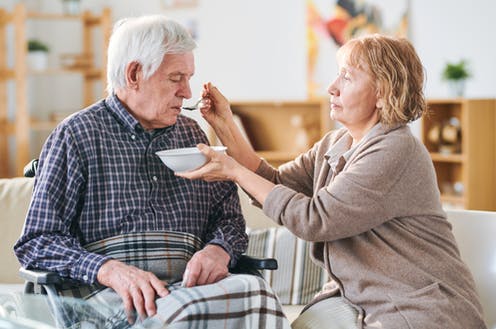Every year in the UK more than 100,000 people have a stroke – a life-threatening event that occurs when blood supply to the brain is cut off. For those who survive, a stroke can result in long-term physical, cognitive, emotional and psychological consequences.
The COVID-19 pandemic is having a drastic effect on the mental health and wellbeing of stroke survivors and their carers. This has coincided with vital post-stroke rehabilitation and support services being reduced or cut. As survivors struggle to adapt to post-stroke life with limited external support, the burden of care is increasingly being placed upon family members and carers.
At the same time, deficiencies that existed in stroke care before the pandemic are becoming more evident. In particular, the lack of emphasis placed on psychological support within post-stroke services must be addressed. The psychological aspect of recovery must be treated as equally important to physical rehabilitation.
For my research project I interviewed 30 stroke survivors from across the UK, speaking to a variety of people aged 18 or older who had been recovering from stroke for more than 12 months.
This work, which explores what factors encourage survivors to positively adjust following a stroke, has identified the importance of mental wellbeing and social support. These factors are being negatively compounded by the effects of the pandemic and the limited support available. If this continues, lasting damage could be done to the long-term adjustment of stroke survivors across the country.
The impact of limited support
A stroke can fundamentally change a person’s everyday life. The physical, emotional and psychological consequences can affect someone’s ability to work, socialise or carry out basic daily activities.
Many people find the psychological aspect of adjusting to life after a stroke the most challenging. This is often defined by a survivor as losing their independence and ability to continue with life as before. As a result, many experience mental health problems, such as a loss of confidence, anxiety, depression and suicidal thoughts.
Post-stroke rehabilitation and support services can reduce the severity of a survivor’s disabilities by addressing their physical, emotional and psychological needs. However, a recent report by the Stroke Association showed that these services, like many others in the NHS, have been significantly reduced or cut as a result of the pandemic.

Shutterstock
This is of great concern as more survivors face the prospect of long-term disability, mental health problems become more prevalent and in turn, the number of survivors in need of psychological support services increases.
Our work found that professional psychological support can help individuals come to terms with the impact of their stroke. Yet the majority of survivors that we interviewed felt they had not received enough – or any – psychological support following their stroke.
This enduring need is being made ever clearer by the effect of the pandemic. The Stroke Association report found seven in ten stroke survivors now feel more anxious and depressed. It is particularly disturbing that 51% of survivors who had their stroke during the pandemic feel abandoned after leaving hospital. If this lack of support continues, a generation of stroke survivors will be left behind as they struggle to adapt to more limited lives.
Burden on families and carers
The reduction in available post-stroke support is also increasing the burden of care on the family members and carers of stroke survivors. It has been reported that 77% of carers and family members have been providing more support during lockdown. As a result, 56% of carers feel overwhelmed and unable to cope with the additional responsibility.
Our research found that maintaining positive social support networks, especially among family and carers, is key in helping survivors to adjust to their new life. But as families and carers find themselves providing greater levels of physical and emotional support during the pandemic, the extra strain could push these social support networks to breaking point. When these collapse, the impact on a stroke survivor’s adjustment to life after a stroke can be profound.

Shutterstock
What’s next
As the future of the pandemic remains uncertain, and restrictions on daily life remain likely even with the vaccination being rolled out, we must urgently address the gap in support to ensure that adequate post-stroke care is being offered.
First, this will involve ensuring that pre-virus levels of rehabilitation and support are being met. Ensuring that pre-COVID national clinical guidelines are adhered to will help not only assist survivors but will also alleviate the additional burden on family members and carers.
Second, the enduring deficiencies within post-stroke care, particularly when it comes to psychological support, must be rectified. Increasing the prominence and availability of psychological support services within the NHS and local authorities must be a priority. This will help establish a robust approach that seeks to recognise and address the importance of mental health and wellbeing following a stroke.
This approach can help encourage stroke survivors and their families to adapt positively to life after a stroke, not only for the immediate future, but throughout and beyond the pandemic, however long it lasts.
![]()
Joseph Hall is affiliated with Glasgow Caledonian University.











